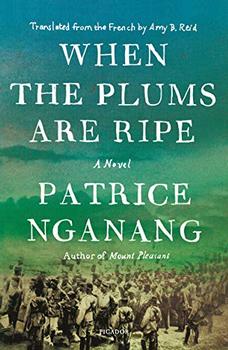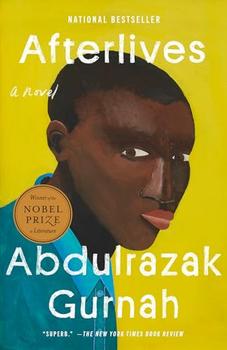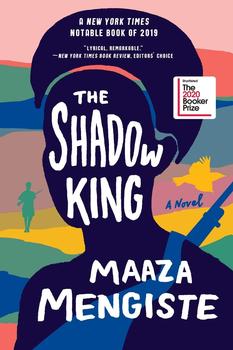Summary | Excerpt | Reviews | Beyond the book | Read-Alikes | Genres & Themes | Author Bio

The second volume in a magisterial trilogy, the story of Cameroon caught between empires during World War II.
In Cameroon, plum season is a highly anticipated time of year. But for the narrator of When the Plums Are Ripe, the poet Pouka, the season reminds him of the "time when our country had discovered the root not so much of its own violence as that of the world's own, and, in response, had thrown its sons who at that time were called Senegalese infantrymen into the desert, just as in the evenings the sellers throw all their still-unsold plums into the embers." In this novel of radiant lyricism, Patrice Nganang recounts the story of Cameroon's forced entry into World War II, and in the process complicates our own understanding of that globe-spanning conflict. After the fall of France in 1940, Cameroon found itself caught between Vichy and the Free French at a time when growing nationalism advised allegiance to neither regime, and was ultimately dragged into fighting throughout North Africa on behalf of the Allies.
Moving from Pouka's story to the campaigns of the French general Leclerc and the battles of Kufra and Murzuk, Nganang questions the colonial record and recenters African perspectives at the heart of Cameroon's national history, all the while writing with wit and panache. When the Plums Are Ripe is a brilliantly crafted, politically charged epic that challenges not only the legacies of colonialism but the intersections of language, authority, and history itself.
When the Plums Are Ripe joins other global fiction now available in translation that illuminates places and cultures often inaccessible to and misunderstood by Western readers. Throughout his work, the poet-novelist traces out glimmers of hope in what he terms the "chiasmus" of war. This novel will likely appeal to readers who enjoy the intellectual scope and enduring, multicultural themes of authors like García Márquez, Murakami, Rushdie, Solzhenitsyn, or Soyinka...continued
Full Review
 (909 words)
(909 words)
(Reviewed by Karen Lewis).
 Located in West-Central Africa, Cameroon is about the size of California, with an estimated population of 25 million. The country's two main cities are Yaoundé, the capital, and Douala, a major industrial port along the Gulf of Guinea in the South Atlantic. It borders many nations: Nigeria, Equatorial Guinea, Gabon, Republic of Congo, Central African Republic, and Chad. There are two official languages: French (spoken by about 80% of the population) and English (spoken by about 20%). In addition, 238 ethnic groups such as the Fulani, Bassa, and Medumba speak their own distinct mother tongues. Camfranglais is a modern, informal dialect, popularized by musicians and urban youth. It borrows words from several languages, especially French ...
Located in West-Central Africa, Cameroon is about the size of California, with an estimated population of 25 million. The country's two main cities are Yaoundé, the capital, and Douala, a major industrial port along the Gulf of Guinea in the South Atlantic. It borders many nations: Nigeria, Equatorial Guinea, Gabon, Republic of Congo, Central African Republic, and Chad. There are two official languages: French (spoken by about 80% of the population) and English (spoken by about 20%). In addition, 238 ethnic groups such as the Fulani, Bassa, and Medumba speak their own distinct mother tongues. Camfranglais is a modern, informal dialect, popularized by musicians and urban youth. It borrows words from several languages, especially French ...

If you liked When the Plums Are Ripe, try these:

by Abdulrazak Gurnah
Published 2023
From the winner of the 2021 Nobel Prize in Literature, a sweeping, multi-generational saga of displacement, loss, and love, set against the brutal colonization of East Africa.

by Maaza Mengiste
Published 2020
Shortlisted for the 2020 Booker Prize, and named a best book of the year by the New York Times, NPR, Elle, Time, and more, The Shadow King is an "unforgettable epic from an immensely talented author who's unafraid to take risks" (Michael Schaub, NPR).
Don't join the book burners. Don't think you are going to conceal faults by concealing evidence that they ever ...
Click Here to find out who said this, as well as discovering other famous literary quotes!